Find Help
More Items From Ergsy search
-

Do firefighters have to contribute to their pension schemes?
Relevance: 100%
-
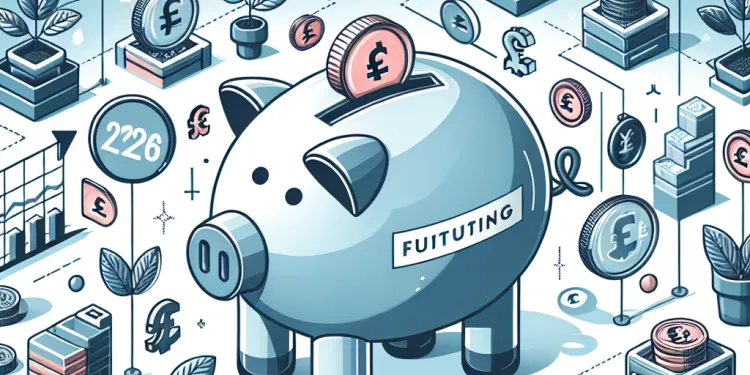
Will pension contribution allowances be affected in 2026?
Relevance: 98%
-
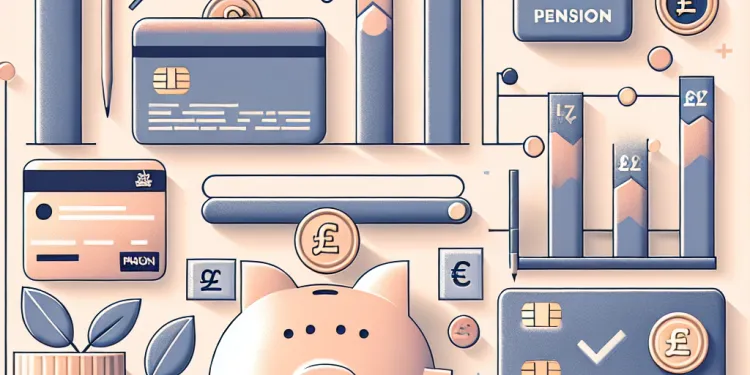
What is a defined contribution pension scheme?
Relevance: 98%
-

Are defined contribution pensions protected if the provider goes bust?
Relevance: 91%
-

5 Ways You Can Contribute More To Your NHS Pension!
Relevance: 89%
-
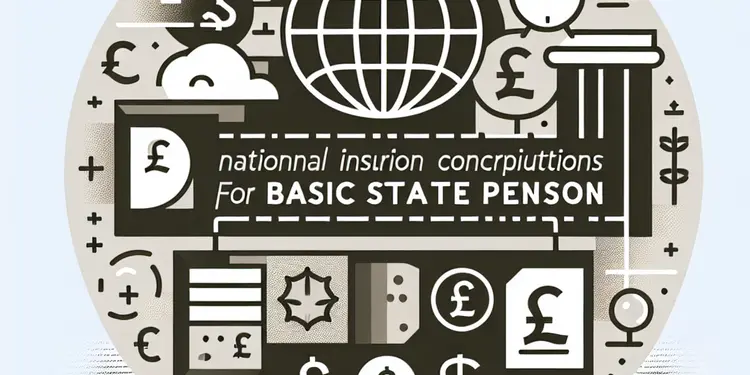
How many National Insurance contributions do I need for the basic State Pension?
Relevance: 86%
-
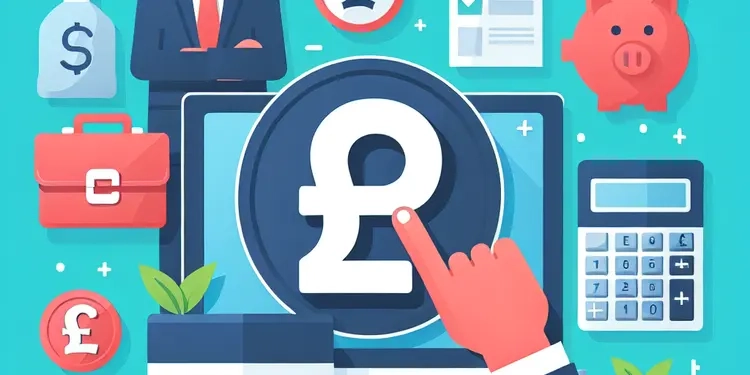
What is the basic pension in the UK?
Relevance: 67%
-

Is the Pension Wise service reliable for pension advice?
Relevance: 67%
-

Pension rights for Firefighters in the UK
Relevance: 66%
-

Will I qualify for the new state pension?
Relevance: 66%
-

Is there a difference between the basic State Pension and the new State Pension?
Relevance: 66%
-
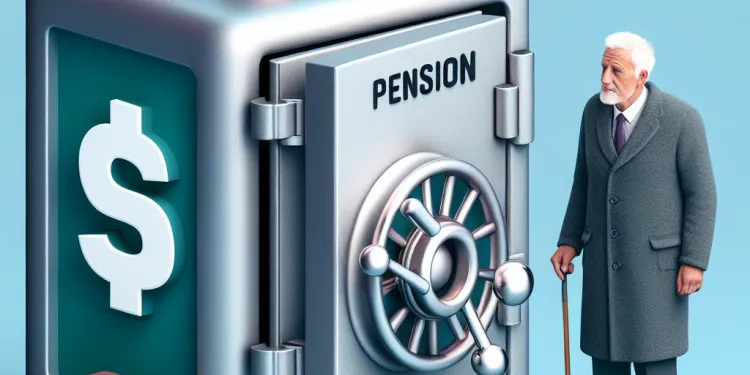
Can pensioners lose all their money if a pension provider fails?
Relevance: 65%
-

Who is eligible for the basic State Pension?
Relevance: 64%
-
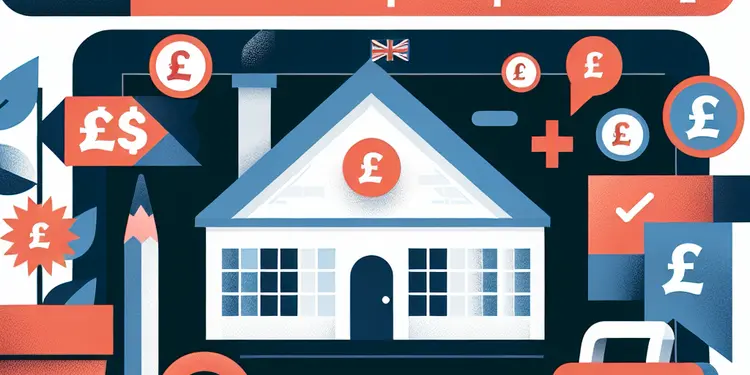
Can I get the basic State Pension if I’m self-employed?
Relevance: 64%
-

Can I get pension advice directly from pension fund providers?
Relevance: 64%
-

What Happens When Pensions Go Bust! | Pension System Collapse UK
Relevance: 63%
-

Police Pension Explained
Relevance: 63%
-

Do all UK firefighters automatically join a pension scheme?
Relevance: 63%
-

Is it possible to buy additional pension benefits as a firefighter?
Relevance: 62%
-
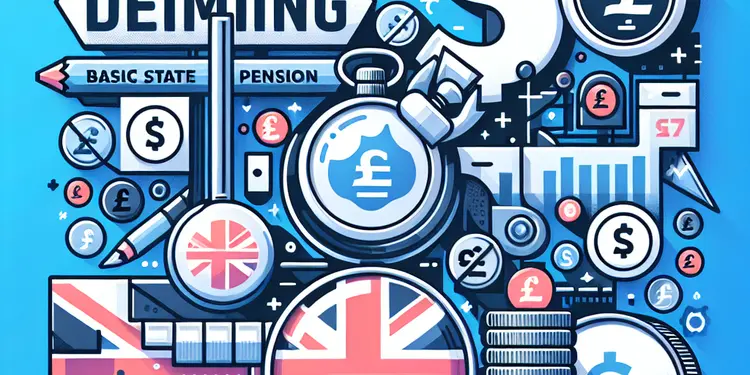
How do I claim the basic State Pension?
Relevance: 62%
-
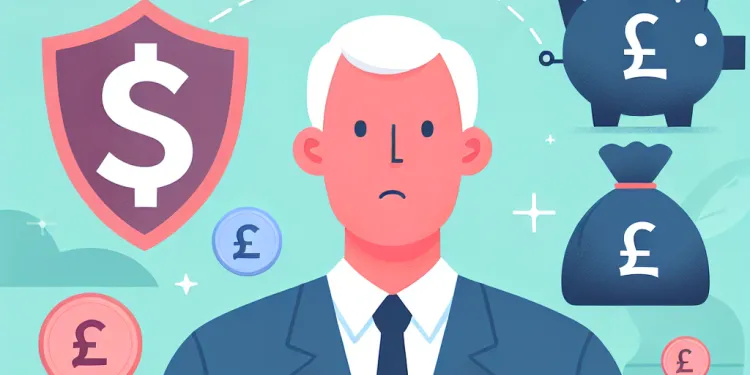
What is the Pension Protection Fund?
Relevance: 61%
-
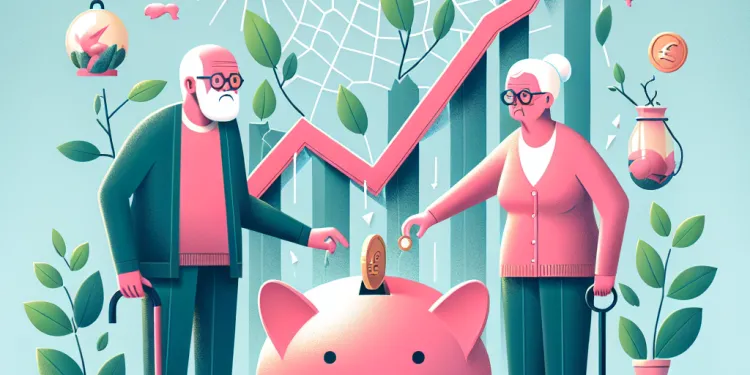
Why do pension funds go bust?
Relevance: 61%
-

What is a defined benefit pension scheme?
Relevance: 61%
-

NHS Pensions | All you need to know
Relevance: 61%
-

How does insolvency impact pension funds?
Relevance: 60%
-

Can my employer provide pension advice?
Relevance: 59%
-

When will the state pension age increase to 67?
Relevance: 59%
-

Public Sector Pension Changes | McCloud Judgement | NHS Pensions etc.
Relevance: 59%
-
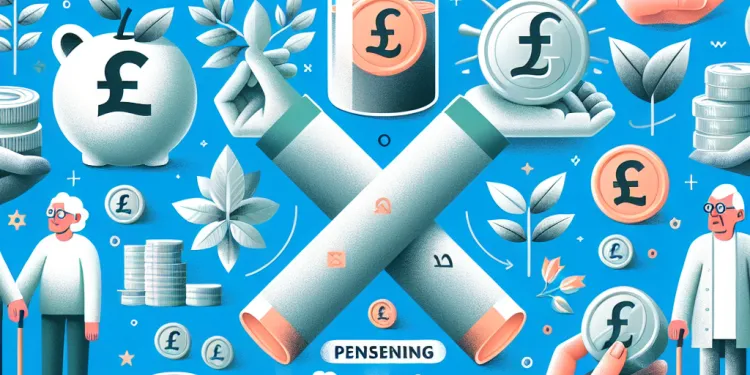
What is the impact on pensioners if a pension system collapses?
Relevance: 59%
-

Can pension scheme members influence how their pension is managed?
Relevance: 59%
-
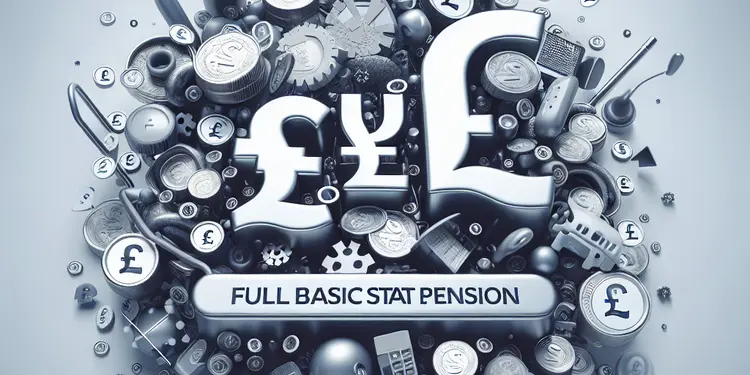
How much is the full basic State Pension per week?
Relevance: 58%
-

Workplace Pension UK | Pros and Cons | GET FREE MONEY FROM YOUR EMPLOYER!
Relevance: 58%
-

Are firefighter pension benefits taxable?
Relevance: 58%
-
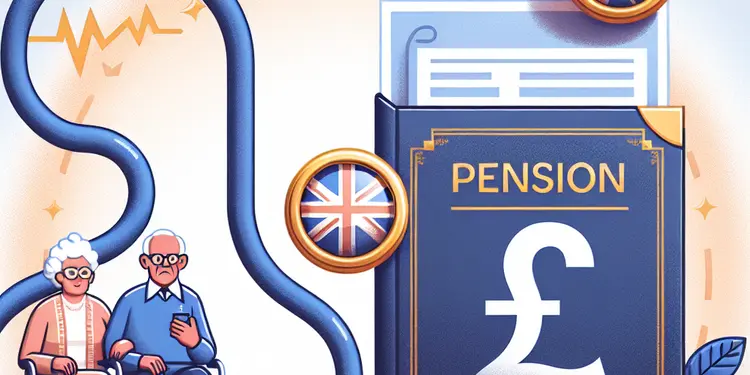
Can my spouse inherit my basic State Pension?
Relevance: 58%
-

State Pension UK | How much will I get? | WILL IT LAST FOREVER?!?
Relevance: 58%
-

Where can I get more information about my pension?
Relevance: 57%
-

Unfreezing the Truth The UK's Frozen Pensions
Relevance: 57%
-

Will the state pension amount change with the age increase?
Relevance: 57%
-
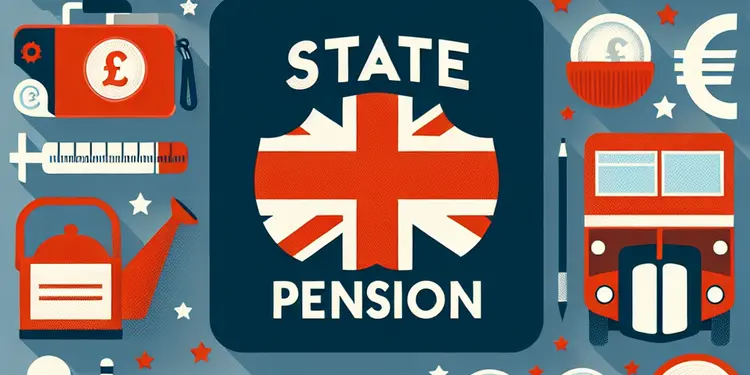
Is the basic State Pension enough to live on?
Relevance: 57%
-

What is the state pension age in the UK in 2026?
Relevance: 57%
5 Ways You Can Contribute More To Your NHS Pension
1. Understand Your Contribution Tiers
The NHS Pension Scheme operates on a tiered contribution system, meaning your contribution rate depends on your pensionable pay. To contribute more, it's crucial to first understand where you stand within these tiers. Becoming familiar with your specific band allows you to calculate how much more you can contribute by possibly moving to a higher tier with increased earnings, enabling higher contribution and thus bolstering your pension savings.
2. Opt for Additional Pension Contributions
One effective way to enhance your NHS Pension is through Additional Pension Contributions (APCs). APCs let you purchase extra pension, which on retirement, adds to your overall benefits. You can choose to pay for this added pension through regular contributions or as a one-off lump sum. Assess your financial situation to determine if APCs align with your long-term retirement goals and budget.
3. Review and Increase Your Voluntary Contributions
If you are a high earner or simply wish to maximize your pension savings, consider Voluntary Contributions. These allow you to contribute beyond the mandatory percentage. Maximize your pension by ensuring your contributions are tax-efficient, and pursue professional financial advice to understand the best way to benefit from Voluntary Contributions. This can lead to a more secure and significant pension pot when you retire.
4. Explore Salary Sacrifice Schemes
Salary sacrifice schemes provide an efficient route to increase pension contributions while gaining tax advantages. By opting to sacrifice a portion of your salary directly to your pension fund, you might save on both income tax and National Insurance contributions. Investigate whether such schemes are available at your workplace and evaluate their impact on your net salary alongside the pension benefits.
5. Update and Monitor Your Retirement Goals Regularly
Lastly, regularly reviewing your retirement goals and corresponding pension contributions is essential. Life circumstances, such as pay rises or changes in personal finances, can directly impact your ability to contribute more toward your pension. Conduct an annual review with an eye on your desired retirement lifestyle to ensure your NHS Pension contributions align with your evolving financial and personal objectives.
5 Ways You Can Add More to Your NHS Pension
1. Learn About Contribution Levels
The NHS Pension Scheme uses different levels for contributions. This means how much you pay depends on your earnings. To add more money to your pension, first learn which level you are in. Knowing your level helps you see if you can pay more by moving to a higher level. Earning more money might let you do this, so you save more for your future.
2. Choose Extra Pension Contributions
You can build up your NHS Pension by making Extra Pension Contributions (APCs). APCs let you buy extra pension, which increases your benefits when you retire. You can pay for this extra pension bit by bit or all at once. Look at your money situation to decide if this is a good choice for your retirement plans and budget.
3. Look At Adding More Voluntary Contributions
If you earn a lot or want to save more for your pension, think about Voluntary Contributions. These let you pay more than you have to. To make the most of your pension, make sure your contributions are smart with taxes. It might help to talk to a money expert to see the best way to use Voluntary Contributions. This can help you have more money when you stop working.
4. Check Out Salary Sacrifice Plans
Salary sacrifice plans can help you add more to your pension and save on taxes. You agree to get paid less, and this money goes straight to your pension. This can reduce the income tax and National Insurance you pay. See if your job offers these plans and think about how they affect your take-home pay and pension benefits.
5. Keep Your Retirement Plans Up to Date
It’s important to update your retirement plans and how much you add to your pension regularly. Changes like raises in pay or different money needs can change how much you can put toward your pension. Check your plans each year to make sure your contributions match your future retirement goals and life changes.
Frequently Asked Questions
What is an NHS Pension?
An NHS Pension is a retirement savings plan for employees working in the National Health Service (NHS) in the United Kingdom. It provides a range of retirement and associated benefits.
How can I increase my NHS Pension contributions?
You can increase your NHS Pension contributions by opting to pay Additional Pension, joining the 50/50 section, purchasing Added Years, making Additional Voluntary Contributions (AVCs), or transferring other pensions into the NHS scheme.
What are Additional Voluntary Contributions (AVCs)?
AVCs are extra payments you can make on top of your normal pension contributions to increase your future benefits. This is a tax-efficient way to boost your retirement savings.
What is the benefit of purchasing Added Years in the NHS Pension scheme?
Purchasing Added Years allows you to buy extra years of service in the NHS Pension scheme, which can increase the value of your future pension benefits.
What is the 50/50 section of the NHS Pension Scheme?
The 50/50 section is a flexible option where you pay half your normal contribution rate and build up half the pension while still maintaining other full-member benefits.
Can I transfer other pensions into the NHS Pension scheme?
Yes, under certain conditions, you may be able to transfer the benefits from another pension scheme into your NHS Pension to potentially increase your pension benefits.
What is the advantage of opting to pay Additional Pension contributions?
Paying Additional Pension contributions allows you to secure a higher annual pension upon retirement. This gives you greater financial security in retirement.
How do tax benefits work with NHS Pension contributions?
Contributions to your NHS Pension are deducted from your salary before tax is applied, which reduces your taxable income and effectively provides tax relief on your pension savings.
What should I consider before increasing my NHS Pension contributions?
Before increasing contributions, consider your overall financial situation, retirement goals, and whether you have enough disposable income to afford additional contributions.
How can Added Years affect my final pension amount?
By purchasing Added Years, you can effectively add more years of service to your pension record, which increases your pension benefits at retirement since your benefits are calculated based on years of service.
Is there a limit to how much I can contribute to my NHS Pension?
Yes, there are annual and lifetime allowances for pension contributions that restrict the total amount of tax-advantaged savings you can accumulate across all your pension schemes.
When should I start thinking about contributing more to my NHS Pension?
It is advisable to start considering additional contributions as early as possible to maximize the potential growth and benefits over time, though it is never too late to enhance your pension.
Can I stop or reduce my Additional Voluntary Contributions if my circumstances change?
Yes, most AVC schemes offer flexibility to stop or reduce payments if your financial situation changes. You should always check with your pension provider for the specific terms.
What happens to my NHS Pension if I leave the NHS?
If you leave the NHS, you have options such as leaving your pension deferred within the scheme, transferring your benefits to another pension provider, or accessing your pension benefits under specific conditions.
Are there risks associated with increasing pension contributions?
While increasing pension contributions can lead to higher retirement benefits, it may impact your current financial situation by reducing disposable income. Consider your financial goals carefully.
What is an NHS Pension?
An NHS Pension is money you get when you stop working because you are old or can't work anymore. It comes from the NHS, which helps people who work for them to save for the future.
When you work, some money is saved for you. When you are older, you get this money back to help pay for things you need.
To help understand more, you can ask a friend or family member to explain. You can also use pictures or videos to learn more about NHS Pensions.
An NHS Pension is a way for people who work in the NHS in the UK to save money for when they stop working. It helps them get money and other benefits when they retire.
How can I pay more into my NHS Pension?
You can put more money into your NHS Pension. This means you will have more money when you stop working.
Here are some easy ways to do it:
- You can ask to take part in something called "Additional Pension" or "Buying Extra Years". This lets you pay more to get a bigger pension later.
- You can also do "Additional Voluntary Contributions" (AVCs). This means you save some extra money each month.
If you find it hard to understand, you can ask someone at work or the NHS Pensions office for help. They can explain things to you.
You can put more money into your NHS Pension in a few ways. You can pay extra money, join the 50/50 plan, buy more years, make extra money payments (called AVCs), or move other pensions into the NHS plan.
What are Extra Payments to Your Pension?
Extra Payments to Your Pension are money you add to your pension. This is on top of the money your job puts in.
You can choose how much extra money to add. Adding more money can help give you more money when you stop working.
If you need help, you can:
- Talk to a person who knows about money, like a financial advisor.
- Ask someone at your job for help.
AVCs are extra money you can put into your pension. This adds to your normal payments. It helps you have more money when you retire. Saving this way can also help you pay less tax.
Why is buying Added Years in the NHS Pension plan good?
Buying Added Years helps you get a bigger pension when you stop working.
This means you will get more money every month when you retire.
Ask someone you trust to help you understand. You can also use a calculator tool to see how much extra money you might get.
Buying Added Years means you can add more years to your time in the NHS Pension plan. This helps make your future pension bigger.
What is the 50/50 section of the NHS Pension Scheme?
The NHS Pension Scheme has a part called the 50/50 section. It is like a savings plan for your future.
In the 50/50 section, you pay half the money you usually would. This means you save some money now, but your pension in the future will be smaller.
If you want help with understanding or joining the 50/50 section, you can:
- Talk to someone at work who knows about pensions.
- Ask a family member or friend to help you read the papers.
- Use a calculator to see how much you might save.
The 50/50 section is an option that lets you pay half of what you usually would. You will also get half the pension benefits, but you will keep all the other full benefits.
Can I put my other pension savings into the NHS Pension plan?
Yes, sometimes you can move your pension from another plan into your NHS Pension. This might help you get more money when you retire.
Why is it good to pay more money for an extra pension?
Paying more money now means you can get more money when you stop working. You might have more money to buy things you need later. Some people use tools like a calculator to help them see how much extra money they will get. You can ask someone you trust to help you understand this.
Paying more money into your pension can help you get a bigger pension when you stop working. This means you will have more money to keep you safe when you are not working anymore.
How do tax rewards work with NHS Pension payments?
When you give money to your NHS Pension, it comes out of your pay before tax. This means you pay less tax, and it helps you save money for your pension.
What to Think About Before Adding More Money to Your NHS Pension
Here are some things to think about before putting more money into your NHS Pension:
1. Money: Make sure you have enough money for your daily needs. Only add more if you can afford it.
2. Future Plans: Think about what you might need money for in the future, like buying a house or a car.
3. Pension Benefits: Understand how adding more money can change your pension in the future. It could make your retirement better!
4. Talk to Someone: It can help to talk to a pension advisor. They can give you good advice.
Remember, it’s always good to ask questions and get help if you need it!
Before you decide to put more money into your savings, think about a few things. Check how much money you have overall, what you want when you stop working, and if you have enough extra money to save more.
How do Added Years change my final pension money?
When you buy Added Years, you can put more years into your pension record. This means you will get more money when you stop working because your pension is based on how many years you have worked.
Can I put as much money as I want into my NHS Pension?
You may want to know how much money you can add to your NHS Pension. Let's explain it simply:
- There is a limit to how much you can add each year.
- If you add too much, you might have to pay a tax.
Here are some tips to help:
- Ask someone you trust if you're unsure how much to add.
- Use a calculator to see if you're putting in the right amount.
- You can talk to a pension expert for advice.
Yes, there are rules about how much money you can put into your pension each year and for your whole life. These rules help decide how much tax-free money you can save in all your pensions.
When is a good time to add more money to my NHS Pension?
You might want to think about putting more money into your NHS Pension if:
- You have extra money to save.
- You are getting close to retiring.
- You want to make sure you have enough money when you stop working.
If you are not sure, you can:
- Talk to someone who knows a lot about money, like a financial advisor.
- Use online tools to help understand how pensions work.
It’s good to plan early so you can enjoy your retirement!
It's a good idea to put extra money into your pension as soon as you can. This helps your money grow more over time. But don't worry if you start later—it's always good to add more to your pension.
Can I change or stop my extra payments if my life changes?
Yes, most AVC plans let you stop or pay less money if you have money problems. Always ask your pension company for the exact rules.
What happens to my NHS Pension if I leave the NHS?
When you leave the NHS, here is what can happen to your NHS Pension:
- Keep It Safe: You can leave your pension where it is. It will stay safe until you are ready to use it when you are older.
- Transfer It: You can move your pension to another pension plan. This means you take it with you if you have a new job with a different pension.
- Take Out the Money: Sometimes, you might be able to take the money out. But you might have to follow some rules.
If you need help, you can:
- Ask a friend or family member to explain.
- Use a calculator to see how much your pension is worth.
- Talk to someone who knows about pensions, like an advisor.
If you stop working for the NHS, you have a few choices. You can leave your pension where it is and let it grow. You can move your pension to another company. Or you might be able to take out money from your pension if special rules allow it.
Is it risky to put more money into pensions?
Adding more money to your pension might have some risks. Here are some things to think about: - **Less Money Now**: If you put more money into your pension, you will have less money to spend now. - **Market Changes**: The money in your pension is often invested, which means it can go up or down with the market changes. - **Plan Rules**: Some pension plans have rules about how much you can add. It's good to check these rules. **Helpful Tips**: - **Budgets**: Make a budget to see how much extra money you have to save. - **Ask Experts**: Talk to a financial advisor for advice. - **Tools**: Use online calculators to see how your pension could grow.Putting more money into your pension can give you more money when you stop working. But it means you will have less money to spend right now. Think about what you want to do with your money.
It might help to talk to someone who knows about money, like a financial advisor, or use a money planning app to help you decide.
Useful Links
Have you found an error, or do you have a link or some information you would like to share? Please let us know using the form below.
-->
This website offers general information and is not a substitute for professional advice.
Always seek guidance from qualified professionals.
If you have any medical concerns or need urgent help, contact a healthcare professional or emergency services immediately.
Some of this content was generated with AI assistance. We’ve done our best to keep it accurate, helpful, and human-friendly.
- Ergsy carfully checks the information in the videos we provide here.
- Videos shown by Youtube after a video has completed, have NOT been reviewed by ERGSY.
- To view, click the arrow in centre of video.
- Most of the videos you find here will have subtitles and/or closed captions available.
- You may need to turn these on, and choose your preferred language.
- Go to the video you'd like to watch.
- If closed captions (CC) are available, settings will be visible on the bottom right of the video player.
- To turn on Captions, click settings .
- To turn off Captions, click settings again.
More Items From Ergsy search
-

Do firefighters have to contribute to their pension schemes?
Relevance: 100%
-

Will pension contribution allowances be affected in 2026?
Relevance: 98%
-

What is a defined contribution pension scheme?
Relevance: 98%
-

Are defined contribution pensions protected if the provider goes bust?
Relevance: 91%
-

5 Ways You Can Contribute More To Your NHS Pension!
Relevance: 89%
-

How many National Insurance contributions do I need for the basic State Pension?
Relevance: 86%
-

What is the basic pension in the UK?
Relevance: 67%
-

Is the Pension Wise service reliable for pension advice?
Relevance: 67%
-

Pension rights for Firefighters in the UK
Relevance: 66%
-

Will I qualify for the new state pension?
Relevance: 66%
-

Is there a difference between the basic State Pension and the new State Pension?
Relevance: 66%
-

Can pensioners lose all their money if a pension provider fails?
Relevance: 65%
-

Who is eligible for the basic State Pension?
Relevance: 64%
-

Can I get the basic State Pension if I’m self-employed?
Relevance: 64%
-

Can I get pension advice directly from pension fund providers?
Relevance: 64%
-

What Happens When Pensions Go Bust! | Pension System Collapse UK
Relevance: 63%
-

Police Pension Explained
Relevance: 63%
-

Do all UK firefighters automatically join a pension scheme?
Relevance: 63%
-

Is it possible to buy additional pension benefits as a firefighter?
Relevance: 62%
-

How do I claim the basic State Pension?
Relevance: 62%
-

What is the Pension Protection Fund?
Relevance: 61%
-

Why do pension funds go bust?
Relevance: 61%
-

What is a defined benefit pension scheme?
Relevance: 61%
-

NHS Pensions | All you need to know
Relevance: 61%
-

How does insolvency impact pension funds?
Relevance: 60%
-

Can my employer provide pension advice?
Relevance: 59%
-

When will the state pension age increase to 67?
Relevance: 59%
-

Public Sector Pension Changes | McCloud Judgement | NHS Pensions etc.
Relevance: 59%
-

What is the impact on pensioners if a pension system collapses?
Relevance: 59%
-

Can pension scheme members influence how their pension is managed?
Relevance: 59%
-

How much is the full basic State Pension per week?
Relevance: 58%
-

Workplace Pension UK | Pros and Cons | GET FREE MONEY FROM YOUR EMPLOYER!
Relevance: 58%
-

Are firefighter pension benefits taxable?
Relevance: 58%
-

Can my spouse inherit my basic State Pension?
Relevance: 58%
-

State Pension UK | How much will I get? | WILL IT LAST FOREVER?!?
Relevance: 58%
-

Where can I get more information about my pension?
Relevance: 57%
-

Unfreezing the Truth The UK's Frozen Pensions
Relevance: 57%
-

Will the state pension amount change with the age increase?
Relevance: 57%
-

Is the basic State Pension enough to live on?
Relevance: 57%
-

What is the state pension age in the UK in 2026?
Relevance: 57%


